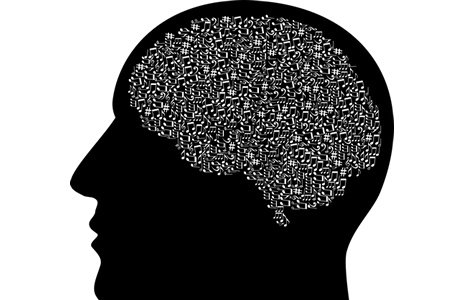Music, Language and the Brain
Free download. Book file PDF easily for everyone and every device. You can download and read online Music, Language and the Brain file PDF Book only if you are registered here. And also you can download or read online all Book PDF file that related with Music, Language and the Brain book. Happy reading Music, Language and the Brain Bookeveryone. Download file Free Book PDF Music, Language and the Brain at Complete PDF Library. This Book have some digital formats such us :paperbook, ebook, kindle, epub, fb2 and another formats. Here is The CompletePDF Book Library. It's free to register here to get Book file PDF Music, Language and the Brain Pocket Guide.
Contents:
ScienceDaily shares links with scholarly publications in the TrendMD network and earns revenue from third-party advertisers, where indicated. For Kirby, every night of work offers the chance to hear some of the liveliest jazz improvisation in Manhattan, an experience that's a bit like overhearing a great conversation. Patel challenges the widespread belief that music and language are processed independently. Relating pitch awareness to phonemic awareness in children: implications for tone-deafness and dyslexia. In trials, participants listened to either speech or music alone, then there was switching between the two. Science , —
So if music is a language without set meaning, what does that tell us about the nature of music? With music, it's the same thing. Pope says even improvisational jazz is built around a framework that musicians understand.
- Spaces with Corresponding Paths.
- Orson Welles: Six Films Analyzed, Scene by Scene.
- Music, Language, and the Brain - Aniruddh D. Patel - Google книги.
- Music, language and meaning: brain signatures of semantic processing.
- Gun Digests Defensive Handguns Weapons and Gear eShort.
- Account Options.
- See a Problem?.
This structure is similar to the way we use certain rules in spoken conversation to help us intuit when it's time to say "nice to meet you," or how to read social clues that signal an encounter is drawing to a close. I have to make sure I'm playing roots on the downbeat every time the chord changes.
It's all got to swing.
But Limb believes his finding suggests something even bigger, something that gets at the heart of an ongoing debate in his field about what the human auditory system is for in the first place. Many scientists believe that language is what makes us human, but the brain is wired to process acoustic systems that are far more complicated than speech, Limb says.
Music, Language, and the Brain: Are You Experienced?
I have reason to suspect that the auditory brain may have been designed to hear music and speech is a happy byproduct. Back in New York City, where the jazz conversation continues at 55 Bar almost every night, bartender Kirby makes it sound simple: "In jazz, there is no lying and very little misunderstanding.
We want to hear what you think about this article. Submit a letter to the editor or write to letters theatlantic.
- The Cryosphere and Global Environmental Change.
- Music, Language, and the Brain.
- Brain Edema XIII.
- The Dragon Diary.
- From Children to Citizens: Volume II: The Role of the Juvenile Court.
- Magic in Western Culture: From Antiquity to the Enlightenment.
- PLOS Blogs.
Adrienne LaFrance is the executive editor of The Atlantic. She was previously a senior editor and staff writer at The Atlantic, and the editor of TheAtlantic.
In the first comprehensive study of the relationship between music and language from the standpoint of cognitive neuroscience, Aniruddh D. Patel challenges. Winner of the ASCAP Deems Taylor Award. In the first comprehensive study of the relationship between music and language from the standpoint of.
They look first at music and then at language as it pertains to music, surveying the relevant science and musicology, and ethnography but also looking at its history. This mostly consists of dry but succinct summaries.
Link between music and speech rhythm in brain could provide language insight
In some languages, stress has a strong effect on the duration of a vowel in a syllable. In contrast, studies of Spanish suggest that stress does not condition vowel duration to the same degree Delattre, Dauer suggested that languages This nicely illustrates the perspective of speech rhythm as a product of phonology, rather than a causal principle e.

Patel avoids speculation here and doesn't exaggerate the implications of findings, so there are no big claims or sweeping narratives. This may disappoint some, but there's still plenty of interest. As key links, Patel highlights nonperiodic aspects of rhythm, melodic statistics and melodic contour, neural resources for syntactic integration, and the expression and appraisal of emotion.
Changing the focus of comparative work from periodic to non-periodic aspects of rhythm reveals numerous interesting connections between the domains, such as the reflection of speech timing patterns in music, and the influence of speech rhythms on nonlinguistic rhythmic grouping preferences. Patel considers the evidence from genetics, animal behaviour, and infant development. I do not think enough evidence has accumulated to reject the null hypothesis.
- Professional development with Web APIs : Google, eBay, PapPal, Amazon.com, MapPoint, FedEx
- Introduction to environmental toxicology : molecular substructures to ecological landscapes
- The Butchers Trail: How the Search for Balkan War Criminals Became the Worlds Most Successful Manhunt
- Mathematical Biology II
- The Great Songs of Al Stewart